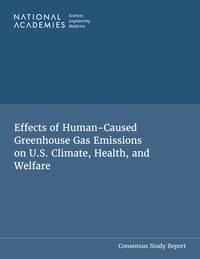Understanding Loper: The Grandfather Clause
Hundreds of past federal cases relied on Chevron. They remain good law.
To cushion the shock of abandoning Chevron, the Supreme Court created a safe harbor for past judicial decisions. This was well-advised. The Court itself applied Chevron at least seventy times, as did thousands of lower court decisions. The key question will be the scope of the grandfather clause.
The Court’s discussion began by saying that “we do not call into question prior cases that relied on the Chevron framework.” Thus, “the holdings of those cases that specific agency actions are lawful—including the Clean Air Act holding of Chevron itself—are still subject to statutory stare decisis [Latin for standing by past decisions] despite our change interpretive methodology.” “This means that “mere reliance on Chevron cannot constitute a ‘special justification’ for overruling such a holding, because to say a precedent relied on Chevron is, at best, ‘just an argument that the precedent was wrongly decided.’” And “That is not enough to justify overruling a statutory precedent.”
It seems clear that the specific regulation upheld by an earlier decision is protected by that previous decision. Thus, the idea that overruling Chevron makes it open season on existing regulations is an exaggeration, because many of those regulations are protected by binding precedent. The next question is the scope of the protection given an agency. The Court begins by referring to specific regulations but then talks more broadly about statutory stare decisis (precedent).
It’s significant that the Court referred to statutory stare decisis, because the general rule is that cases interpreting statutes are especially difficult to overrule. Unlike a constitutional decision, a case interpreting a statute can be reversed by Congress passing a new law. Therefore, error correction by the courts is less needed for statutory precedents. That means that overruling cases from the Chevron era will be very difficult.
What happens if a regulation that was upheld under Chevron is later amended? If the features of the regulation that were challenged in the earlier case remain unchanged, that should mean that the validity of those features is still binding law. Presumably, the same should be true even if the agency repeals the earlier regulation and replaces it with a new regulation that retains those features. The innovations in the new regulation might be subject to attack, but stare decisis (respect for precedent) should protect the features inherited from the earlier regulation.
For example, EPA issued an interstate pollution rule that was based on an earlier Supreme Court decision called EME Homer. Less than a week before Loper, the Court stayed that decision for other reasons, but nowhere in that opinion was there a hint that EME Homer was in any way in doubt.
There has been talk about a surge of litigation challenging regulations that were upheld under Chevron. The Court seems to have been trying to shut the door to such challenges. Doing otherwise would have introduced chaos into many areas of regulation, with a devastating effect on everyone who had relied on those decisions – investors, agency officials, states, and Congress itself. No doubt there will be a few lawless judges – probably in the Fifth Circuit – who will ignore the Court’s directives. They will deserve summary reversal by the Supreme Court.
Tomorrow: A Sheep in Wolf’s Clothing?
Reader Comments
8 Replies to “Understanding Loper: The Grandfather Clause”
Comments are closed.







seventy time. Correct to “times.”
Thanks, Ronnie. Fixed now.
Dan,
What effect the Court’s Corner Post decision on this grandfathering, assuming the regulation at issue is governed by the APA statute of limitations?
Hi Paul — I think Corner Post is part of the motivation for the discussion in Loper. Corner Post does allow new plaintiffs to bring lawsuits years after the fact, except when a statute like the Clean Air Act bars such belated challenges. That gets the plaintiff into court, but they are still faced with a binding precedent upholding the regulation, so they should still lose.
Thanks for your reasonable and hopeful response. I understand the theory for the difference between statutory and constitutional stare decisis, but am not particularly optimistic that the former principle will be more durable than the latter with the current Court majority leading the way.
Paul – There’s obviously a lot of uncertainty, and you could well be right. It really all depends on how serious Roberts, Kavanaugh, and Barrett are about the positions they take in opinions. Time will tell.
To repeat my earlier question, despite your contention that this will not uproot past regulatory rules due to the deference to stare decisis, is it possible that we could pass a federal bill that makes Chevron the law of the land, and would it in fact help prevent rogue judges such as in the 5th circuit that you mention, from trying to ignore Chevron? Or would you suggest other fixes that might be more substantial and strategic?
Jeremy – That’s a very good question. I do see room for congressional action on this issue. That’s going to be difficult given congressional gridlock, but it’s not impossible.